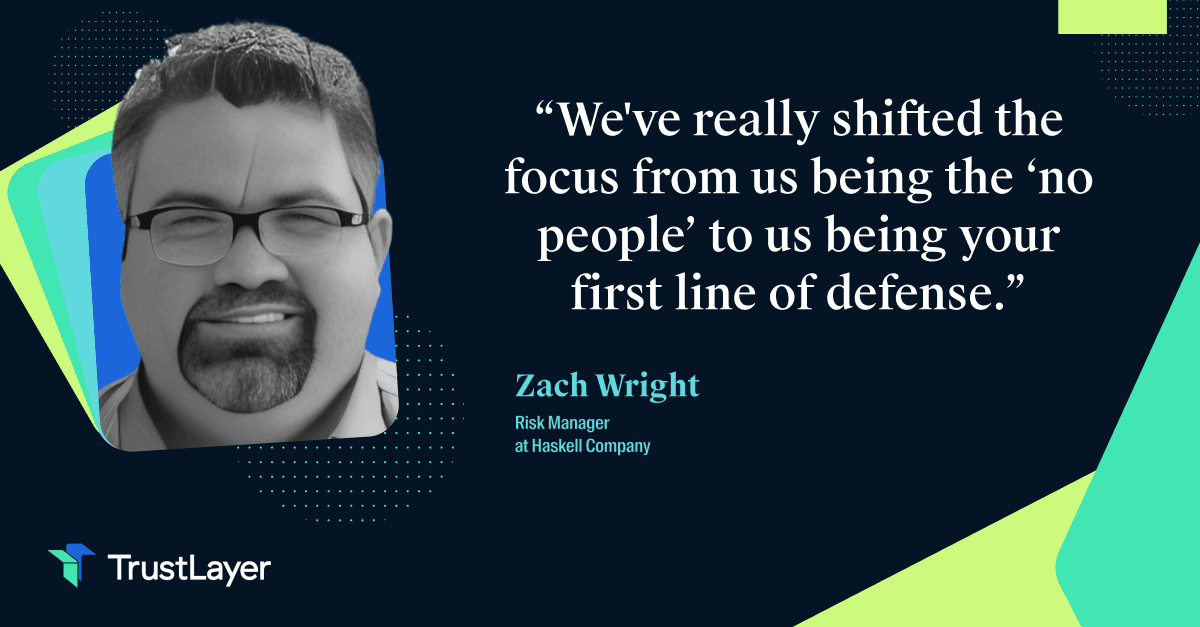On the latest episode of Risk Management: Brick by Brick, Jason Reichl is at RISKWORLD 2024 speaking to Lyndsey Christofer, Executive Vice President in Construction and Real Estate & Hospitality (REH) Industry Practice at Chubb.
In this episode, Jason and Lyndsey explore the impact of evolving technology on risk management, including how it has affected the job description of underwriters and how risk programs can become more tech savvy. They also discuss the impact of the pandemic on real estate and hospitality and what this means for risk managers in the area.
To find out how TrustLayer manages risk so that people can build the physical world around us, head to TrustLayer.io.
The Tech Revolution
As technology has rapidly evolved over the past decade, so have the descriptions of job roles in risk management, and many people are struggling to keep up with the new advancements.
Traditionally, future risks are predicted and premiums are set based on past data, but new tech has made this less reliable. Lyndsey says, "We can't utilize the same tools that we've been using for decades... It's trying to marry the two and use better analytics to say, okay, this is what we think and then trust in that."
We need to keep evolving with the technology, building new models that balance past data with the anticipated impacts of new technologies so we are comfortable with our underwriting decisions.
We also need to look at making risk programs more tech savvy, but integrating the technology into insurance offerings can be challenging for both brokers and carriers. Chubb are initiating pilot projects with their clients to test promising tech and ensure it has a tangible, positive impact on the programs. They also carefully vet their vendors to ensure they are committed to enhancing safety.
Their key focus is measuring the impact of technology on several factors, translating that into premium savings and better contractual risk transfer programs.
"It's really like, what's the impact it's having on either the behavior, on the losses, on the general efficiency of a company, right? Is the company well managed? And then how can we translate that into premium savings? But it's got to be reducing risk at some point."
The Real Estate and Hospitality Picture
Since COVID, the real estate and hospitality sectors have been hit hard. Many office buildings have been reimagined and converted into apartments, and some areas, like San Francisco, are struggling in the hospitality sector, whereas others are booming, reaching their pre-pandemic occupancy and cost levels.
For risk managers in the sector, it is becoming increasingly important to conduct very detailed data analysis into the changes in occupancy rates, as much of the data around the pandemic will have discrepancies due to the unique impact of the time. You need to understand the full story.
"The more information, the better. That's always what we say... Understanding what's making up the data, right? In a general submission, we get losses and exposure, perspective and historical, but really what's behind that and telling your story."
At Chubb, they are focused on developing new services based on the redefined risks, rather than creating new products.
To find out more about risk management in real estate and hospitality from Lyndsey, tune in to this episode of Risk Management: Brick by Brick.
Apple Podcasts: https://apple.co/469o6PL
Spotify: https://spoti.fi/45Rd6pY
Podcast Host: Jason Reichl
Executive Producer: Don Halliwell








